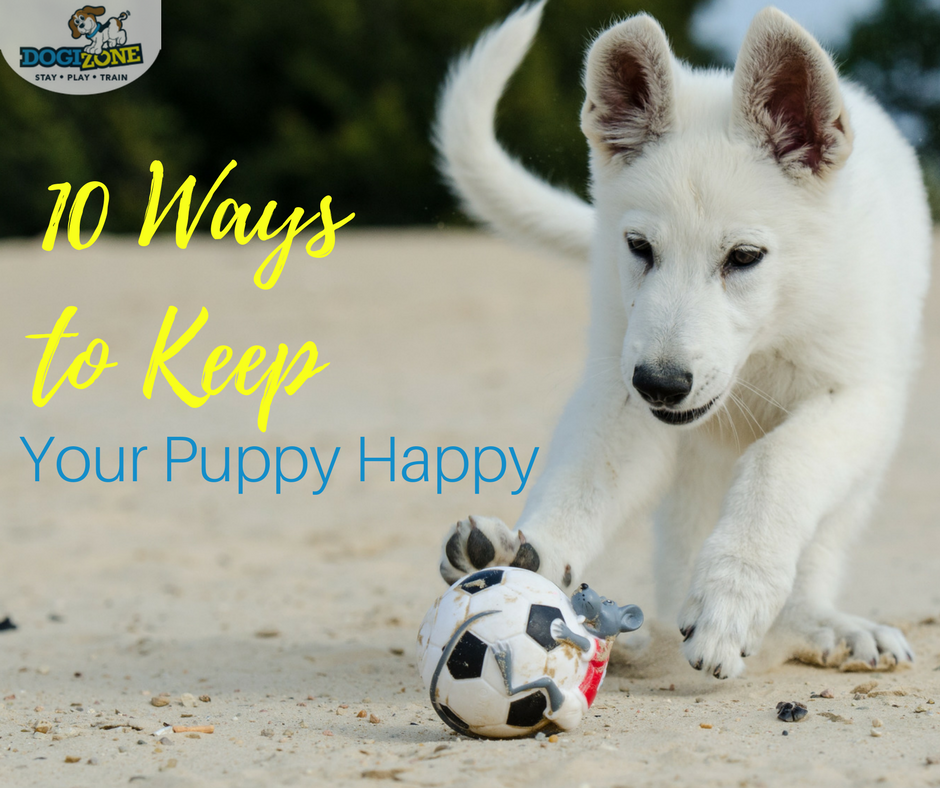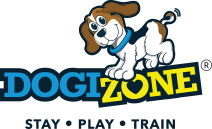10 Ways to Keep Your Puppy Happy
Puppies need lots of attention, supervision & interaction. I have some tips for you on how to keep your puppy happy.
Helpful Puppy Training Tips
 Having a new puppy in the home is an exciting time for everyone. For first-time dog owners, it can also be a bit of a challenge. Without experience in being around puppies and caring for their physical and mental well-being, it can sometimes be hard to know if you are doing the right thing.
Having a new puppy in the home is an exciting time for everyone. For first-time dog owners, it can also be a bit of a challenge. Without experience in being around puppies and caring for their physical and mental well-being, it can sometimes be hard to know if you are doing the right thing.
To help keep a puppy happy, there are many different things that you can do. Puppies, just like toddlers, need a lot of attention, supervision, and interaction, but the more you provide during their early transition to your home the happier and more social the dog will be as it grows.
- Have a crate – a crate represents a den and a safe, relaxing place for the puppy. Make it a comfortable place with quality padding and some favorite toys. Puppies should never be punished in the crate or confined in the crate; rather it is their own place to go when they just need some downtime.
- Pet and play – puppies need to be petted, touched and soothed. They are learning to trust humans and to bond, and this is a simple and easy way to do this several times a day. Work with the puppy’s natural cycles of being awake and being asleep, remember young puppies will sleep part of the day and be incredibly active for the rest.
- Frequent outdoor trips – puppies naturally want to keep their area clean, but they also have little bladders and will need to go outside on a regular basis. You can easily time your puppy after eating and known just when to start heading for the outdoors, their bladder and bowel movements will be fairly predictable. Remember, right after waking from a nap is another time to go outside.
- Don’t yell or have things loud – puppies can be very sensitive to sound. Yelling, loud music or a loud TV can frighten puppies easily. Puppies that are frightened can develop into nervous and anxious dogs that lack trust.
- Socialize – once your puppy has completed vaccinations, start socializing on a regular basis. Find other puppies or friendly dogs for your puppy to interact with and bring him or her along on outings that are short and puppy-friendly. Make sure to socialize the puppy with other animals such as cats and also with other people.
- Exercise – while a puppy will tire much faster than a juvenile or adult dog, they still love to get outdoors and run and explore. Find a safe, fenced area and let your puppy have some time just to smell the grass, chase the butterflies and have fun exploring the surroundings.
- Play – have things for the puppy to play with and chew on. Not only will it be fun for the puppy, but it will also start to provide short little training opportunities over time. Puppies will have their favorite items from balls to chew toys and even dog-friendly plush toys. A good variety provides lots of options.
- Limit alone time – while it isn’t always possible to be home most of the time with the puppy, try to limit long stretches of the puppy being left at home alone. If you have another pet in the house this is less of a problem, provided the two are well socialized and the older dog or the other pet is not aggressive towards the puppy.
- Fresh food and water daily – puppies should be fed according to their age and size. Take the uneaten food away from the puppy and store it safely after mealtime to prevent insects from getting in the food. Change the water several times a day, particularly if the puppy tends to step in it or knock the bowl over.
- Be consistent – your puppy will be happy when the rules are clear. Different rules and different responses from people in the house cause confusion, which can impact later training.
Most of all, be patient. Your puppy is just learning, give time and lots of praise to help your puppy feel confident and assured in his interactions with you and everyone around.
_____________________________________________________________
**** CLICK HERE for the DogiZone Training Overview ****
